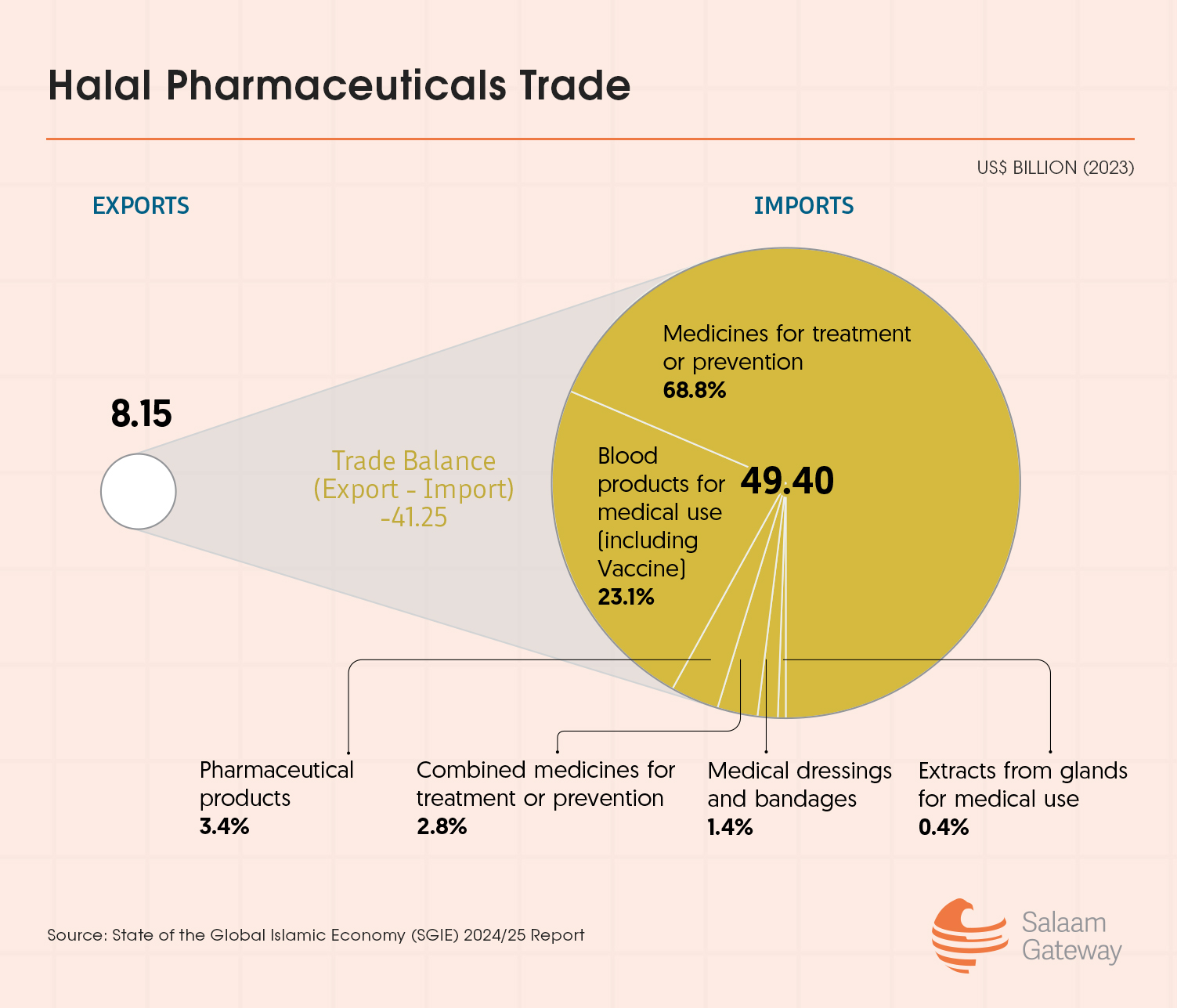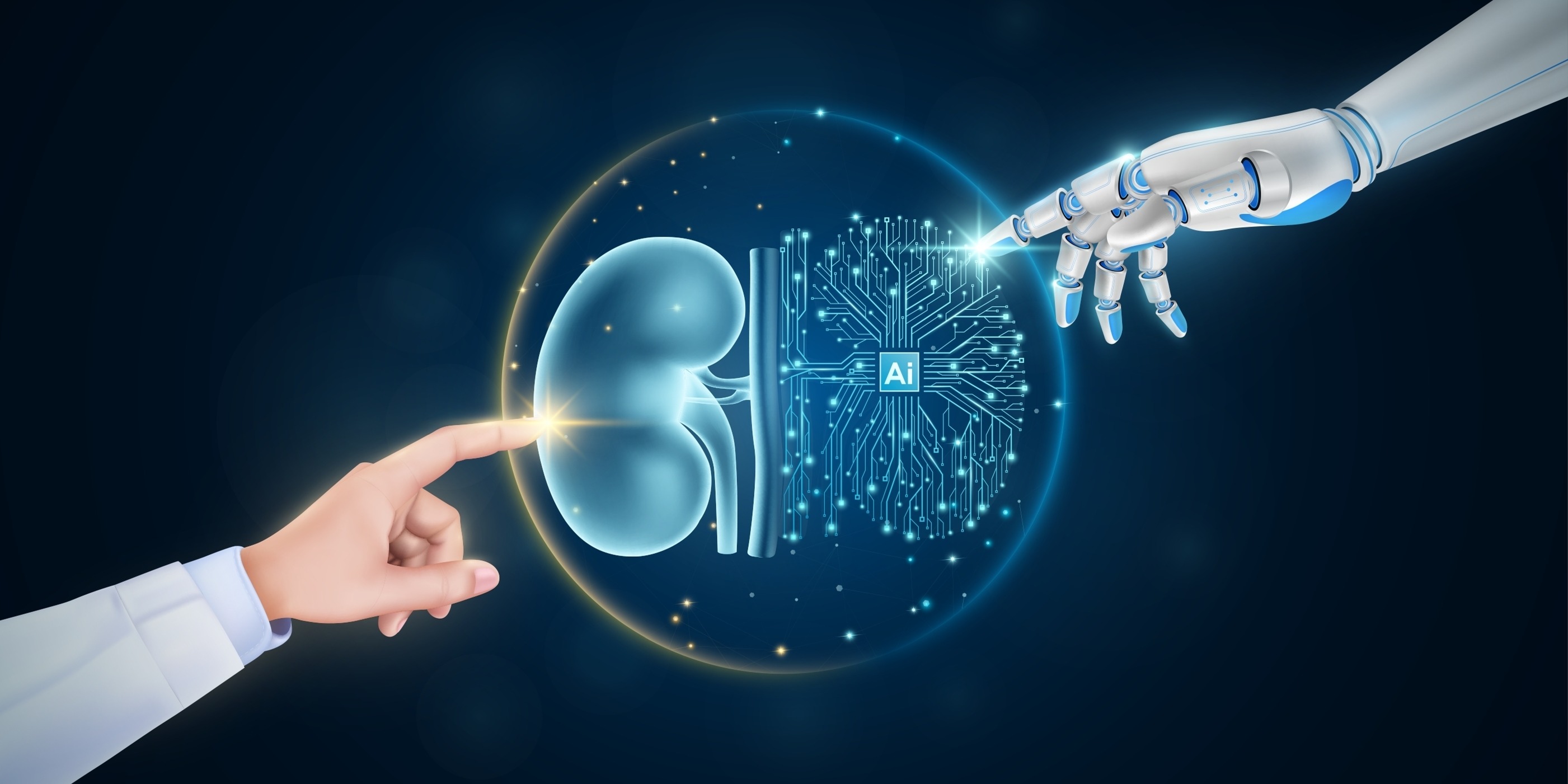Pharmaceutical imports have long outpaced exports across the Muslim world, with most of the Organization of Islamic Cooperation (OIC) member nations heavily dependent on foreign medical products.
However, with governments pouring investment into frontier technologies such as AI, automation, and biotech, a transformation is now underway - one that could finally tip the balance toward self-sufficiency and position OIC nations as global contenders in next-generation medicine.
“For decades, Muslim-majority countries have struggled with pharmaceutical import dependency and supply chain vulnerabilities,” Dr. Anurag Byala, CEO of Dubai-based software solutions provider Techies Infotech, tells Salaam Gateway.
“Today, AI, advanced analytics, and automation are offering these nations an opportunity to bypass traditional development paths and establish pharmaceutical sovereignty. Predictive analytics platforms have helped Muslim-majority countries forecast demand and prioritize local pharma production.”
Unlike Western nations burdened by legacy systems, Dr. Byala cites the examples of Muslim-majority countries - such as the UAE, with its pharma hub ambitions; Turkiye, with its expanding manufacturing capacity; and Saudi Arabia, with the launch of NUPCO, a digital healthcare marketplace enabling private healthcare providers to purchase equipment and supplies.
“These efforts are offering them leapfrogging opportunities to build smart factories without retrofitting outdated infrastructure,” he explains.
“Additionally, AI systems can track and verify halal compliance throughout the supply chain - addressing religious requirements and building consumer trust in locally manufactured medicines.”
Saudi Arabia, the UAE, and Türkiye were recipients of vast majority of OIC pharmaceutical imports in 2023, worth nearly $8 billion, $6 billion, and $5 billion, respectively. On balance, OIC member states exported ($8.1 billion) less than a quarter of the pharmaceutical products they imported ($49.4 billion) in terms of overall value, according to the State of the Global Islamic Economic 2024/25 Report.

Building local innovation ecosystems
AI, data-driven R&D, and tech-enabled collaborations are already accelerating drug discovery and localization across the OIC landscape, particularly in the six-member Gulf Cooperation Council.
In the UAE, Abu Dhabi-based Insilico Medicine is leveraging its Pharma.AI platform and automated laboratory for drug discovery and development both locally and globally. In 2025, the AI-powered biotech company announced a pilot project to identify a novel oncology drug candidate, creating a model that could be replicated across the Gulf region.
In a parallel move, Saudi Arabia’s NanoPalm teamed up with Canadian biopharma research company Rakovina Therapeutics earlier this year to launch a JV aimed at advancing AI-discovered oncology drug candidates.
Meanwhile, UAE-based Gulf Pharmaceutical Industries (Julphar) partnered with China’s Sunshine Lake Pharma in 2023 to localize the production of modern insulin analogues in the MENA region - a first for the region. Sunshine Lake applies AI technology across multiple stages of drug R&D, using advanced AI-driven models to enhance innovation capacity.
Another example comes from Southeast Asia, where Nvidia is expanding its footprint through strategic partnerships supporting healthcare startups. The US tech giant is investing in Malaysia and Singapore to advance AI in science, robotics, and intelligent systems - helping the region become a leading hub for sovereign AI development.
Regulators embrace the future
The timing appears to be most opportune as governments and regulators, traditionally wary of artificial intelligence, are buying into frontier technologies, laying the groundwork for AI adoption in pharmaceuticals across the Muslim world.
“Saudi Arabia's Saudi Food and Drug Authority has pushed digital transformation, and local manufacturers are investing in automation under Vision 2030. UAE's free zone pharma facilities are being built with Industry 4.0 capabilities from scratch,” says Byala.
“Turkiye's export-oriented manufacturers are implementing automation and AI-powered quality control to meet EU GMP standards, whereas Malaysia has positioned itself well as a hub for halal pharmaceuticals, utilizing digital tracking systems.”
One of AI’s most transformative frontiers in pharmaceuticals lies in personalized and precision medicine, which aims to tailor treatments to individual genetic profiles.
“We may be able to cure diseases like cancer in the future - for example by splicing genetic code into someone's MMRA vaccines. Many chronic diseases can be addressed at a genetic level before they require very expensive medical interventions,” Richard Staynings, chief security strategist at US-based Cylera, tells Salaam Gateway during the fifth Global Cybersecurity Forum (GCF) in Riyadh.
Such innovation, he adds, will not only improve quality of life but also reduce the enormous financial burden on national health systems.
Byala, meanwhile, advises caution, noting that transformation is still at an early stage.
“Adoption is happening more in packaging automation, warehouse management, and digital documentation. AI and machine learning in actual drug development are still limited. That said, the direction is promising."
While true dependence on local pharmaceuticals for many OIC members might still be a long way off, the direction is unmistakable. Advanced technologies are strengthening self-reliance, accelerating drug discovery, and laying the foundation for more resilient healthcare systems.

